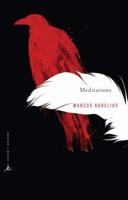Publisher's Synopsis
Aristotle's De Interpretatione is considered a transitional work in his larger corpus, but also in full continuity with his systematic engagement with reality and our distinct place in it as rational beings. Here one encounters Aristotle's treatment of issues that are properly logical, but it also opens to broader philosophical insight that considers how words are related to the mind and the world (things), and furthermore confronts the problem of truth and fatalism. Thomas Aquinas' commentary on this text is a rich resource that pushes Aristotle's reflections to deeper elaboration on the notions of truth, falsehood, and metaphysics.
Professor John O'Callaghan notes that this commentary is "a very useful supplement and foil for understanding better the discussion of these issues in the Metaphysics." His engaging Preface to the work is a forecast of the monumental expansion of perspective in readers who will confront the masters in their primary texts. As he affirms, "Each alone is a rich enough source of insight and inspiration to occupy the best minds of any age. Combined, in the various different Aristotelian texts with St. Thomas' commentaries, they are explosive. The De Interpretatione, and St. Thomas' commentary upon it serve as a marvelous introduction to this extraordinary and providential collaboration."









